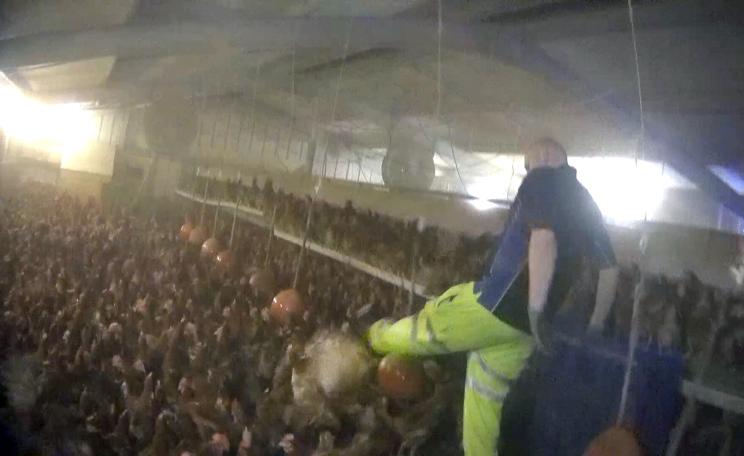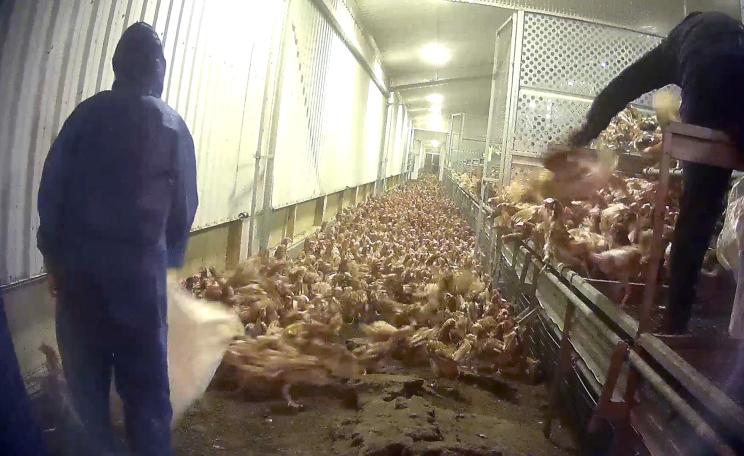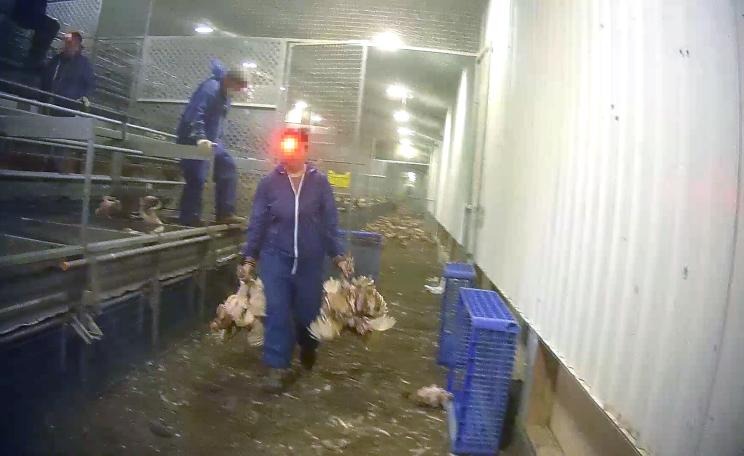Animal agriculture fuels the climate catastrophe, encourages antibiotic resistance, and drives pandemics that ravage our health, freedom, and economy.
Like most kids, I grew up loving animals. We’re born free from prejudice when it comes to other animals, and to a child, a horse is just as special as a pig and a chicken is as lovable as a dog.
We’re led to believe that the picture-book representations of them snuggled in straw-filled barns are true and that they’re cared for by farmers.
READ: RSPCA: stop assuring animal cruelty
I believed in the work of the Royal Society for the Protection of Cruelty to Animals (RSPCA) and the erroneous idea that using animals is okay as long they’re treated well. I conducted my first RSPCA fundraiser aged 11 and volunteered in rescue and rehabilitation for a local branch some years later.
Exploited
Eventually, I was elected to the RSPCA board of trustees. I worked alongside individuals like Richard Ryder, who coined the term “speciesism”. I served on the board for 10 years and on the RSPCA Assured board for nine.
Initially, I was proud to contribute to one of the world’s best-known animal welfare organisations. But the more I learned, the more disillusioned I became.
I started to realise that promoting animal welfare doesn’t address the right of all sentient beings not to be commodified - but rather perpetuates and normalises their use, which inevitably involves cruelty.
Welfare legislation may be intended to improve the lives of exploited animals, but even these marginal standards can only be enforced with regular inspections, which are in reality all too rare.
Kind
Confronted with the fact that welfare standards merely serve to make humans more comfortable with using animals so they can continue to benefit from their exploitation and death, I started to understand the truth of the matter.
After being vegetarian for over 30 years, I had to confront the realisation that I was speciesist. I was consuming products of suffering in the form of dairy and eggs – and that was a lightbulb moment which led me to go vegan.
I started to see that the RSPCA was hypocritical, too, given that it campaigns to end cruelty to cats and dogs yet accepts – and even promotes – the exploitation of animals on farms.
The organisation’s new tag line is “for every kind”, but it seems that animals considered to be companions are the only ones it deems worthy of protection. Meanwhile, countless others suffer in the meat, egg, dairy, wool, and other industries – often under the misleading RSPCA Assured label.
Protecting
As dozens of exposés old and new prove, “higher welfare” facilities still allow the confinement of sentient beings to filthy, crowded factory farm conditions.
Animal agriculture fuels the climate catastrophe, encourages antibiotic resistance, and drives pandemics that ravage our health, freedom, and economy.
Many animals are mutilated, including by being subjected to beak-trimming, tail-docking, and castration – often without any pain relief. Animals are routinely forced to live in their own excrement and repeatedly impregnated, only for their babies to be torn away from them.
And – regardless of any welfare label – they all end up at a slaughterhouse, where they’re subjected to a terrifying death. Even if we disregard the shocking abuse that makes headlines, countless horrific acts against animals – from inflicting blunt-force trauma to gassing them to death – are permitted and routine on UK farms.
I look back on my time as a welfarist with sadness. Sure, it opened my eyes, and maybe I did help improve conditions for some animals, but I know in my heart that it fell woefully short of protecting them from harm.
Free
While animal welfare work is complicated – built on subjective, ever-changing, and often-ignored rules that are geared to ensure industrial profit – animal rights is simple: animals are sentient individuals, not objects, and therefore, they are not ours to use in any way or for any reason.
Exploiting other animals also backfires on humans. Animal agriculture fuels the climate catastrophe, encourages antibiotic resistance, and drives pandemics that ravage our health, freedom, and economy. I urge people to embrace the necessity of animal rights and not tinker round the edges as I did as a welfarist.
We’re conditioned to see dogs as friends and cows as food and elephants as icons and mice as pests, but critical thinking can help us abandon speciesism, which in turn reveals the problem with animal welfare: cruelty to animals can’t be prevented by giving them a fraction more space.
Cruelty can only be prevented by recognising their inherent right to live free from exploitation. After all, a cage is a cage.
This Author
Jane Tredgett is the farming and corporate projects liaison at People for the Ethical Treatment of Animals (PETA).




